Charcoal and gas grills are two of the most common types of grills available. While arguing the merits of gas vs. charcoal grills can spark an endless debate, neither one is definitively better than the other. Consider your unique needs and preferences when making a decision. Keep reading to learn more about choosing between a gas or charcoal grill for your backyard.
Tip: When weighing the pros and cons of a charcoal grill vs. gas grill, there's really no wrong answer. Whichever style you choose, you can make mouthwatering food for yourself, your friends and your family.
SHOP GRILLS NOW
Gas or Charcoal
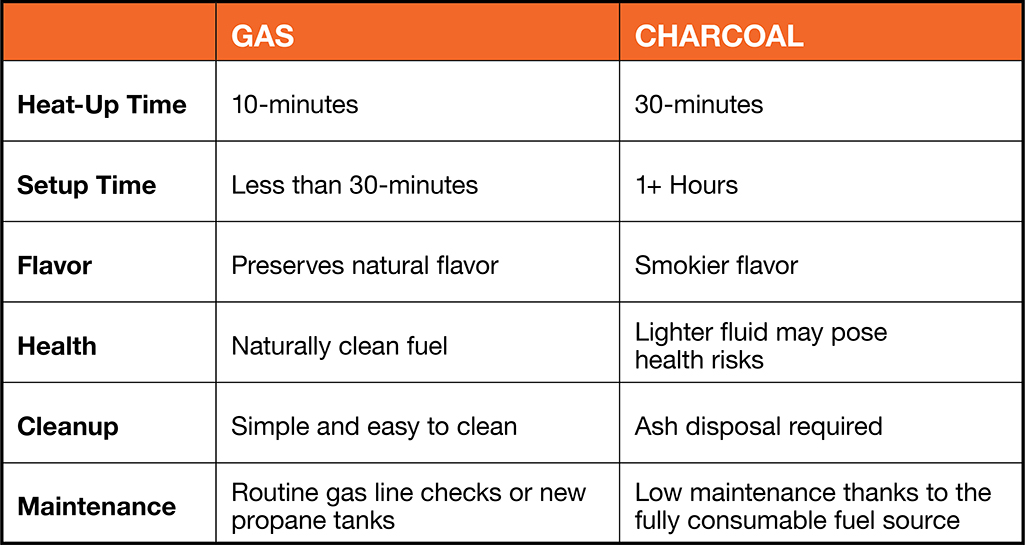
If you're choosing between a gas or charcoal grill for weeknight meals and easy cookouts with your family, heat-up times might be the most important factor for you. Gas grills take about 10-minutes to heat up. This means you can turn on the grill and it will get to a very high temperature in a matter of minutes. This temperature is also easier to control since knobs on the unit adjust the heat.
High-heat cooking is important for many. If you want to turn out tasty steaks, chicken and perfectly seared veggies in minutes, you need a grill that has ample power. While different models will vary in terms of heat output, your average gas grill can easily hit the 600-degree mark in just a few minutes. If fast heat-up times matter to you, a gas grill is a must-have.
The same temperature range is possible with charcoal grills. Some models can reach considerably higher temperatures, and the direct heat makes them better for searing food. You'll need to use a chimney starter or get your coals hot in the bottom of the grill. On average, this is going to take roughly 30-minutes.
Remember that if you choose charcoal and you want a precise temperature reading, you may need to invest in a grill thermometer or gauge. These are not always part of the housing as it would be on a gas grill.
It's also important to consider fuel costs when choosing the best grill for you. Gas grills can connect to a gas line outside your home, and the costs will roll into your utility bills. Propane tanks prices can vary, but depending on how often you use the grill, this can turn into a hefty expense. Charcoal grills require charcoal and a lighting agent, like lighter fluid, to fuel the unit. These materials are generally more affordably priced.
Tip: Portable grills are easy to transport and store if you’re taking your cookout on the road.
Assembly and Setup
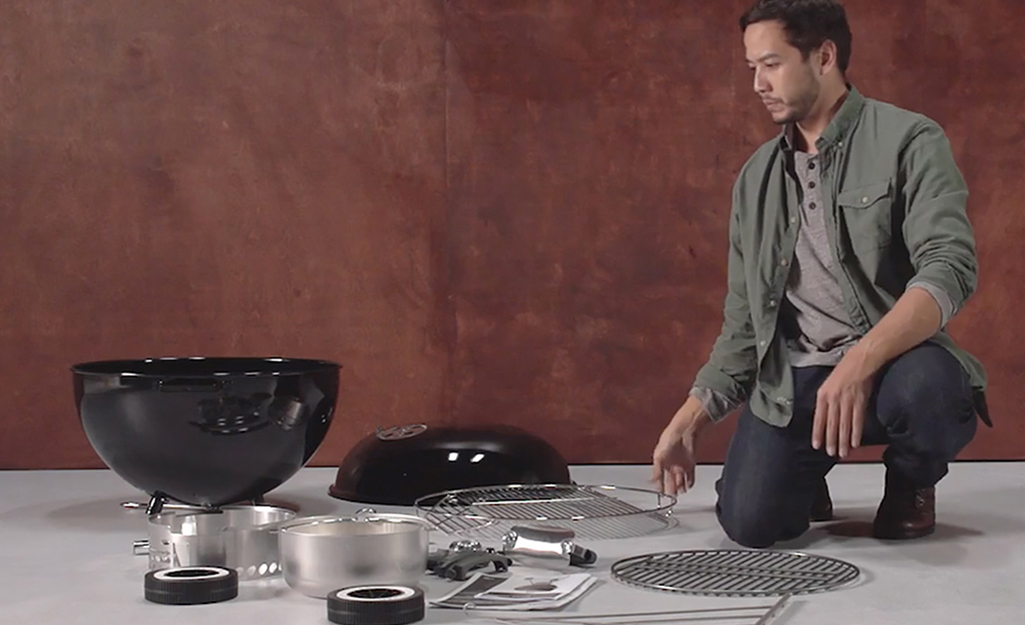
When you first get your grill, you'll need time to set it up properly. If you're looking for fast setup, a charcoal grill will keep things easy, as you don't need to connect propane tanks or a natural gas line. In most cases, a charcoal grill can be up and running in about half an hour.
Your gas grill will likely take a couple of hours to set up. However, your setup time will be reduced each time you grill since you won't have to worry about getting your charcoal hot before you cook.
Tip: We offer delivery and expert assembly on new gas and charcoal grill purchases.
Overall Flavor
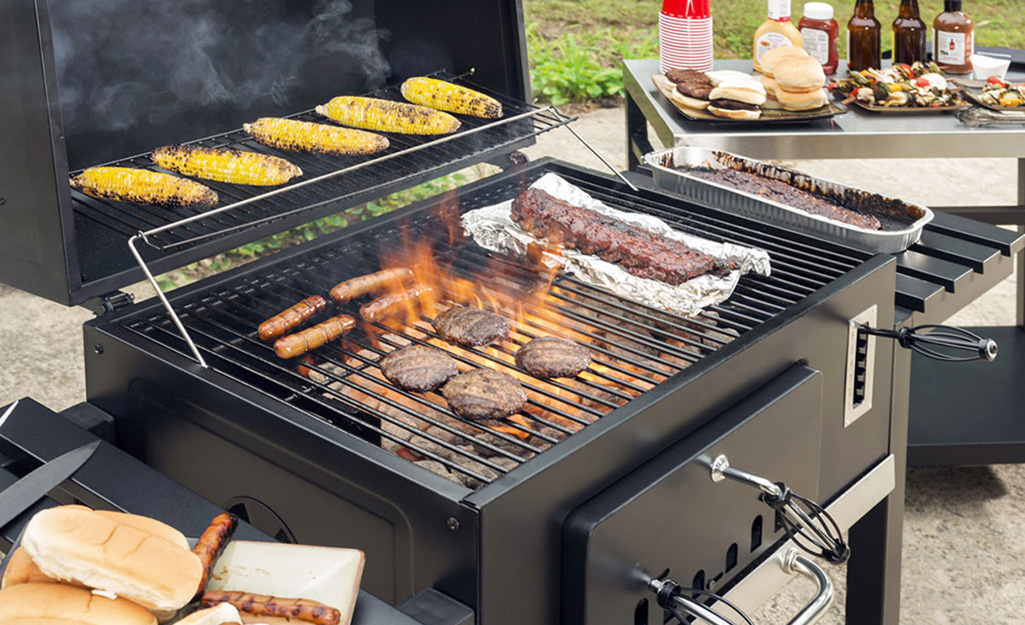
Everybody knows grilled food is delicious, but do charcoal and gas grills give you the same flavor? Is one a clear winner in this category? Unfortunately, the answer isn't so simple. When it comes to the flavor of a gas vs charcoal grill, it is solely a matter of preference.
Some people prefer the smoky taste from charcoal grills since they add a little something extra to your food. For many, the flavor profile of grilled food is all about the kind of charcoal used. Others will claim gas is the clear winner since it better preserves the natural flavor of each dish.
Some of the best foods to cook on a gas grill:
- Burgers
- Hot dogs
- Lean cuts of steak
Some of the best foods to cook on a charcoal grill
- Chicken
- Turkey
- Thick cuts of steak
- Seared vegetables
Health Considerations
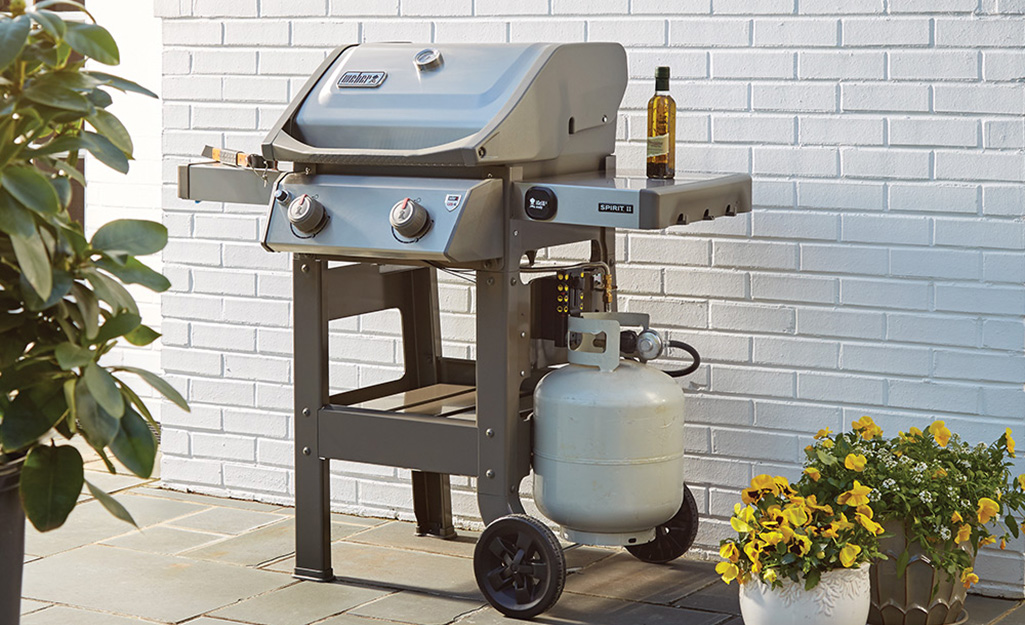
Being concerned about your overall health and how it relates to your cooking techniques is important. Many are curious about charcoal vs. gas grill health issues.
While gas may be a slightly cleaner fuel type in general, you can mitigate the health impacts of charcoal grills by using natural briquettes. You should also skip the lighter fluid. With that in mind, you can choose between a gas grill vs charcoal grill using other criteria and worry less about your health.
Cleanup and Maintenance
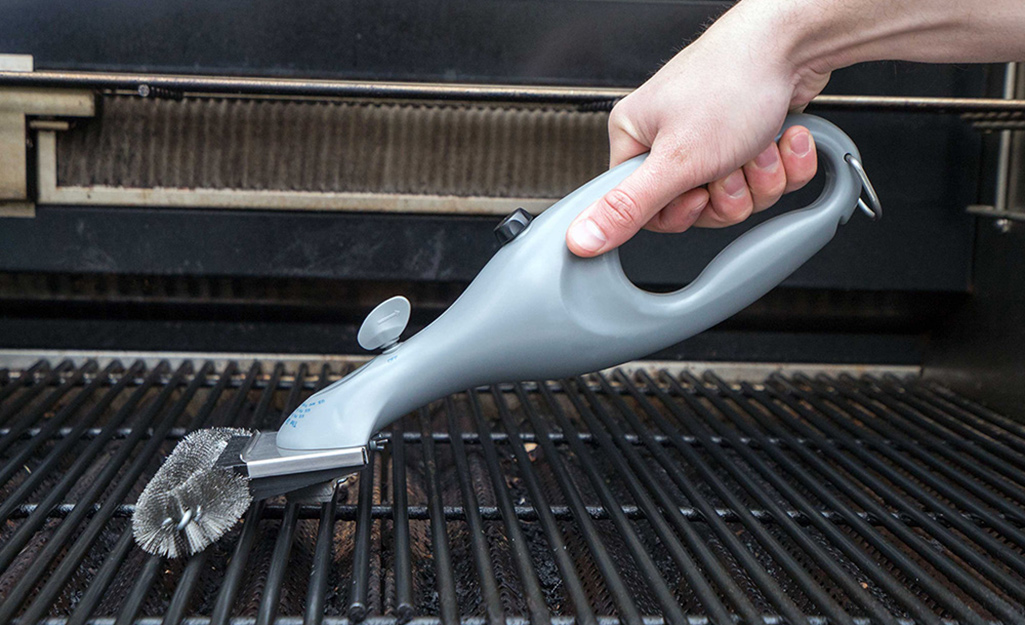
When it comes to cleanup, gas is the clear grill king since all you really need to do is wipe down the grill grates when you're done.
With a charcoal grill, you'll need to remove and dispose of the ashes after each use. You'll also need to clean the grates like on a gas grill. If you love the flavor of charcoal, a few extra minutes of cleanup time can be minutes well spent.
Both gas and charcoal grills require routine maintenance, so you can't escape it completely no matter which model you choose.
With a gas grill, you'll likely spend more time on maintenance overall since you'll need to check your propane tank or gas line regularly. You'll also need to clean your grill grates, drip pan and flavor bars after each use.
With a charcoal grill, emptying the charcoal ashes takes priority. You'll need to clean your grates as well, and once in a while, give your empty grill a thorough wipe-down. In general, a charcoal grill requires less time spent on regular maintenance because it's a simple device with a fully consumable fuel source.
When making a choice between charcoal vs. propane or natural gas grills, know that they are both great options for your backyard. There's no definitive winner when comparing the two options. For most people, it all boils down to preference and what you're familiar with.
Gas grills might have the slight edge when it comes to day-to-day convenience, but many love the flavor of charcoal. Some people even choose to own both kinds for more varied cooking options. With similar cleanup times, maximum temperatures and maintenance needs, you can't go wrong with either type of grill. Shop our selection today. Grills N More delivers when and where you need them.

